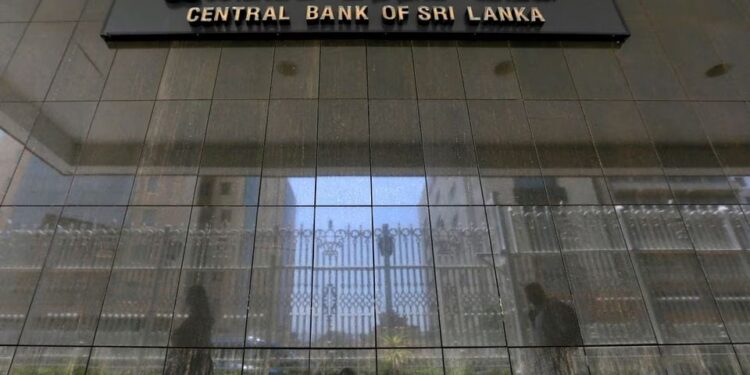Sri Lanka’s central bank is expected to keep rates unchanged at its policy meeting this week as it continues to support the debt-laden economy amid persistently high inflation.
The island nation defaulted on its foreign debt for the first time in April last year, as the worst financial crisis since its independence from Britain in 1948 crushed its economy.
Sri Lanka secured a $2.9 billion bailout from the International Monetary Fund (IMF) in March and aims to complete restructuring debt talks by September.
Thirteen out of the fifteen analysts and economists polled by Reuters expect the Central Bank of Sri Lanka (CBSL) to hold benchmark rates steady on Thursday, at its fourth policy rate announcement this year. The decision will be announced via a statement at 7:30 a.m. (0200 GMT).
The CBSL held its standing deposit facility rate and standing lending facility rate at 15.50% and 16.50%, respectively, in April.
The central bank raised rates by a record 950 basis points last year to tame inflation and by 100 bps on March 3.
“The central bank will likely wait for progress on the IMF programme and for inflation to fall below current interest rates before indicating a reduction,” said Dimantha Mathew, head of research at First Capital.
The country has been struggling with soaring prices for more than a year but signs point to inflation easing. Consumer prices slowed in April to 35.3% from 50.3% in March and is expected to hit single digits by September.
However, the remittances and tourism-reliant economy continues to struggle amid high debt and weak external demand. The IMF expects GDP to contract 3% this year after a 7.8% contraction last year.
The first review of its IMF programme is expected in September and Sri Lanka plans for it to coincide with the completion of debt restructuring talks with creditors.
However, creditors and markets are still awaiting details of domestic debt restructuring plans, which were expected to be announced this month but will likely be pushed to mid-June, analysts said.
“We think CBSL will also delay a rate reduction until the domestic debt restructuring or optimisation plan is announced,” said Shehan Cooray, head of research at Acuity Stockbrokers.
“There could be a rate reduction afterwards when policy rates are announced in July or August.”




















